Future State: Superman writer says the Man of Steel "shows us who we're supposed to be"
Writer Phillip Kennedy Johnson describes his love for Superman and preview his two Future State Superman titles
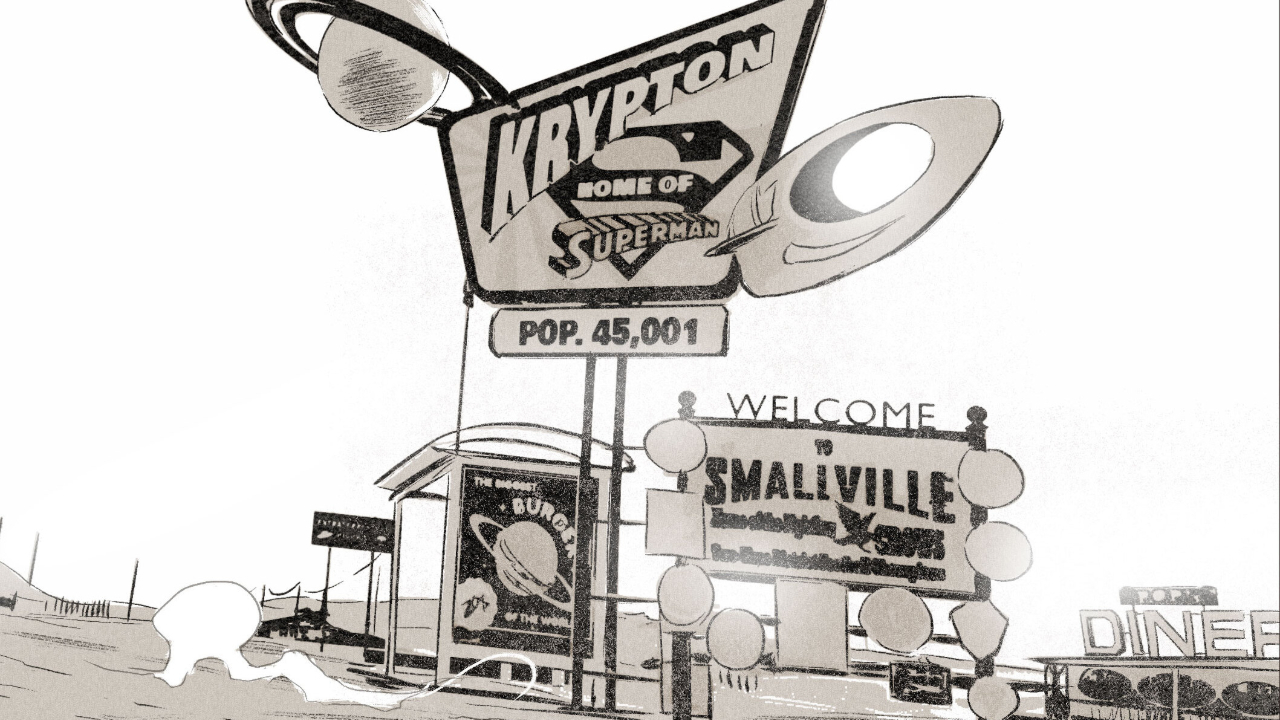
In January DC goes back to the future in a two-month event that will offer readers a glimpse of the DC Universe in various near- and far-flung futures.
Future State takes almost all of the publisher's core continuity ongoing series off the schedule for January and February, replaced by anthologies, short series, and specials.
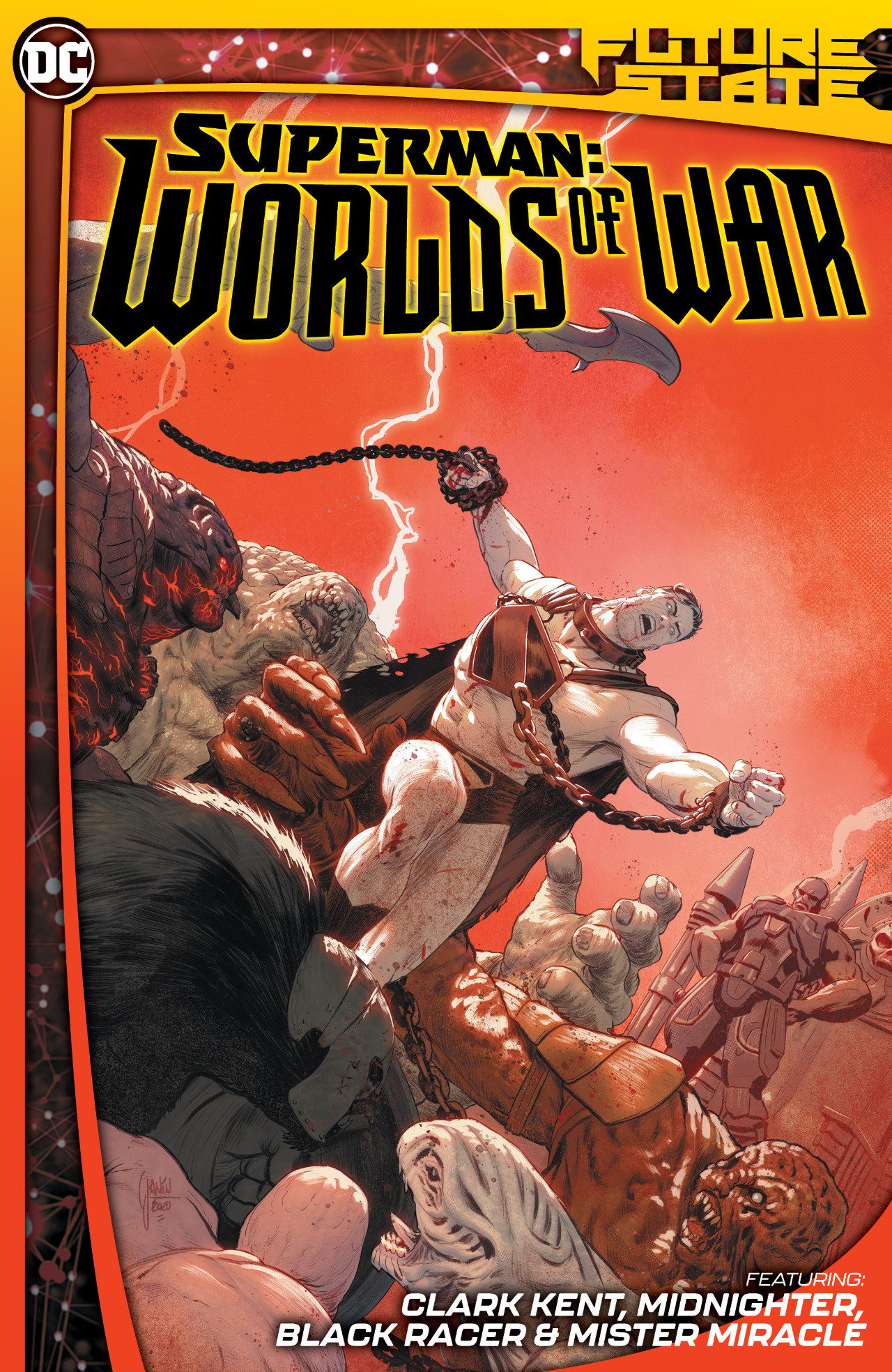
Writer Phillip Kennedy Johnson (DC's The Last God, Marvel Zombies) has been tasked with creating two distinct futures for Clark Kent in two different titles - one (the lead feature of the two-issue Superman: Worlds of War anthology with art by Mike Janin) in which he's left Earth and Metropolis in the hands of Jonathan Kent to fight in the gladiatorial pits of Mongul for unknown reasons and another (the Superman: House of El one-shot with art by Scott Godlewski) set in a far more distant future in which Clark is the seeming patriarch of new generations of Kryptonian heroes including some of his own descendants.
Check out more details about the January Future State Superman titles and February Future State Superman titles here.
Johnson, who declined to respond to our question of whether his two-time Future State association with Clark Kent and Superman will continue in March when the currently writer-less Action Comics and Superman ongoing titles return to DC's schedule, did, however, answer our questions about Worlds of War and House of El, including the age-old question of whether Superman - who he calls one of his "lifelong comic book heroes" - is difficult to write for.
Newsarama: First of all Phillip, how did you wind up with not one but two Future State Superman stories featuring Clark Kent?
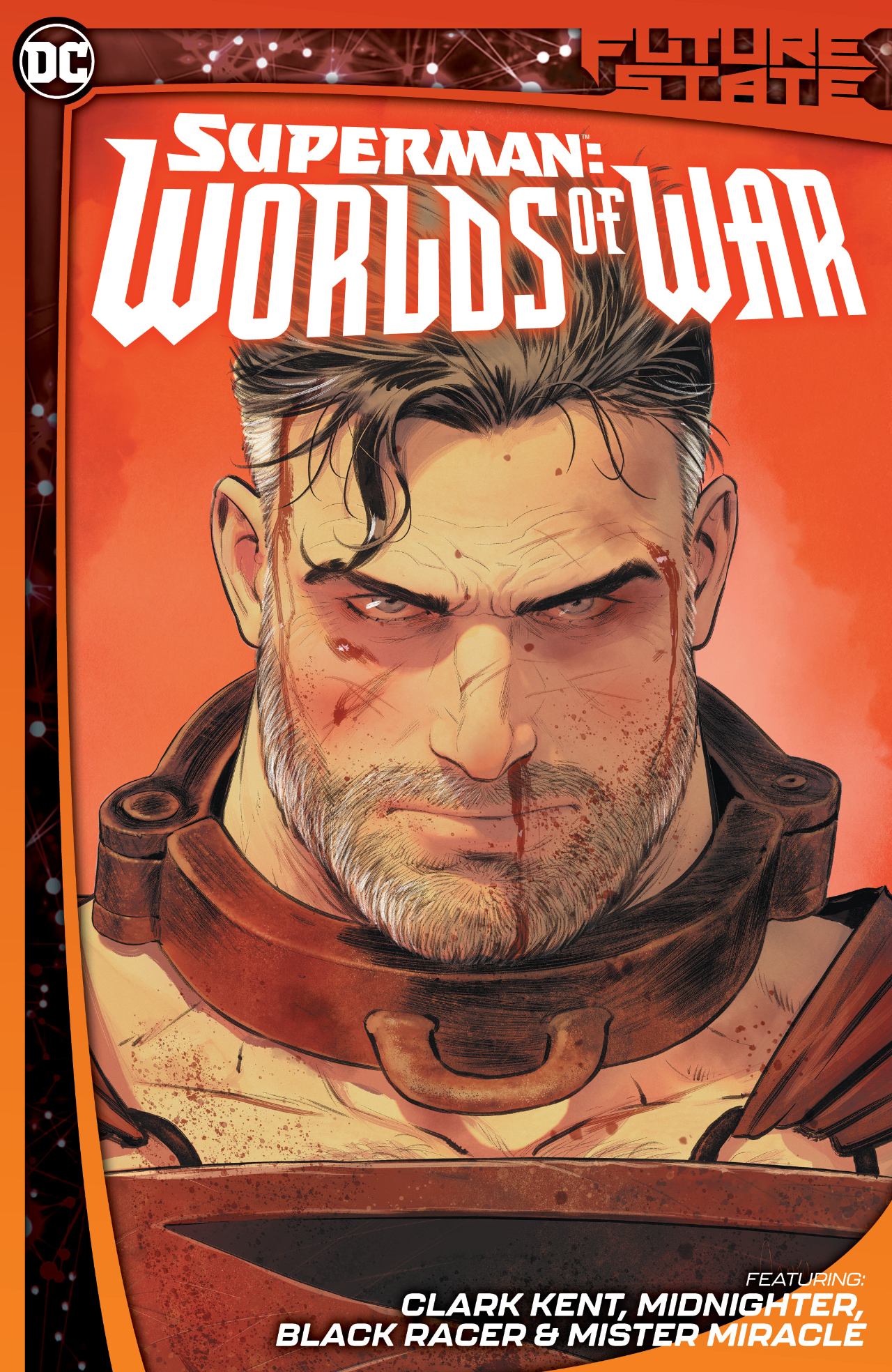
Phillip Kennedy Johnson: If there's one thing I love to do in comics, it's worldbuilding. Comics is the ideal medium for it, and I've gotten some amazing opportunities to do it: with Warlords of Appalachia at Boom! Studios, in the world of The Dark Crystal at Archaia, Marvel Zombies at Marvel, and most notably with The Last God at DC.
If Future State is one thing, it's ambitious, and it seemed like DC wanted to go big and epic with the Superman books in particular. I think some of the world-build-y series I've written recently helped get me on their radar, and I'm mad excited to get a chance to write one of my lifelong comic book heroes.
Weekly digests, tales from the communities you love, and more
Nrama: Superman is always that character we have to ask - why Superman? Arguably the most iconic fictional character in any medium … also arguably difficult to write for.
First of all, do you buy into the notion that his omnipotent power makes him hard to create conflict for?
Johnson: No, I've never understood that perspective about Superman. Superman is defined as much by his compassion for all living things as he is by his physical strength. There are tons of stories in which Superman is challenged physically, but that aside, anyone who cares as much as Superman does about people, about life, about justice, has plenty of potential conflict. And it's even better these days because he has a family, a son. Superman is supposedly "invulnerable," but I'm here to tell you: he is not invulnerable. Having a child is the ultimate vulnerability.
Nrama: The flipside to that question is what is the appeal of the character for you?
Johnson: In simplistic terms: he just feels so good to write! Superman inspires people. Certainly, he inspires me. He shows us who we're supposed to be. He cares about everyone, even his enemies. He's a man of almost absolute power, but also absolute compassion, kindness, humility. Having a character like that in my head just makes me want to be more than I am.
On top of all that, the addition of his son to his mythology makes him a dream character to write. Superman's love for all life can be expressed on the page through his love for his only son, and it makes him so relatable. I think most readers know what it's like to care about someone that way, that willingness and desire to do anything for someone.
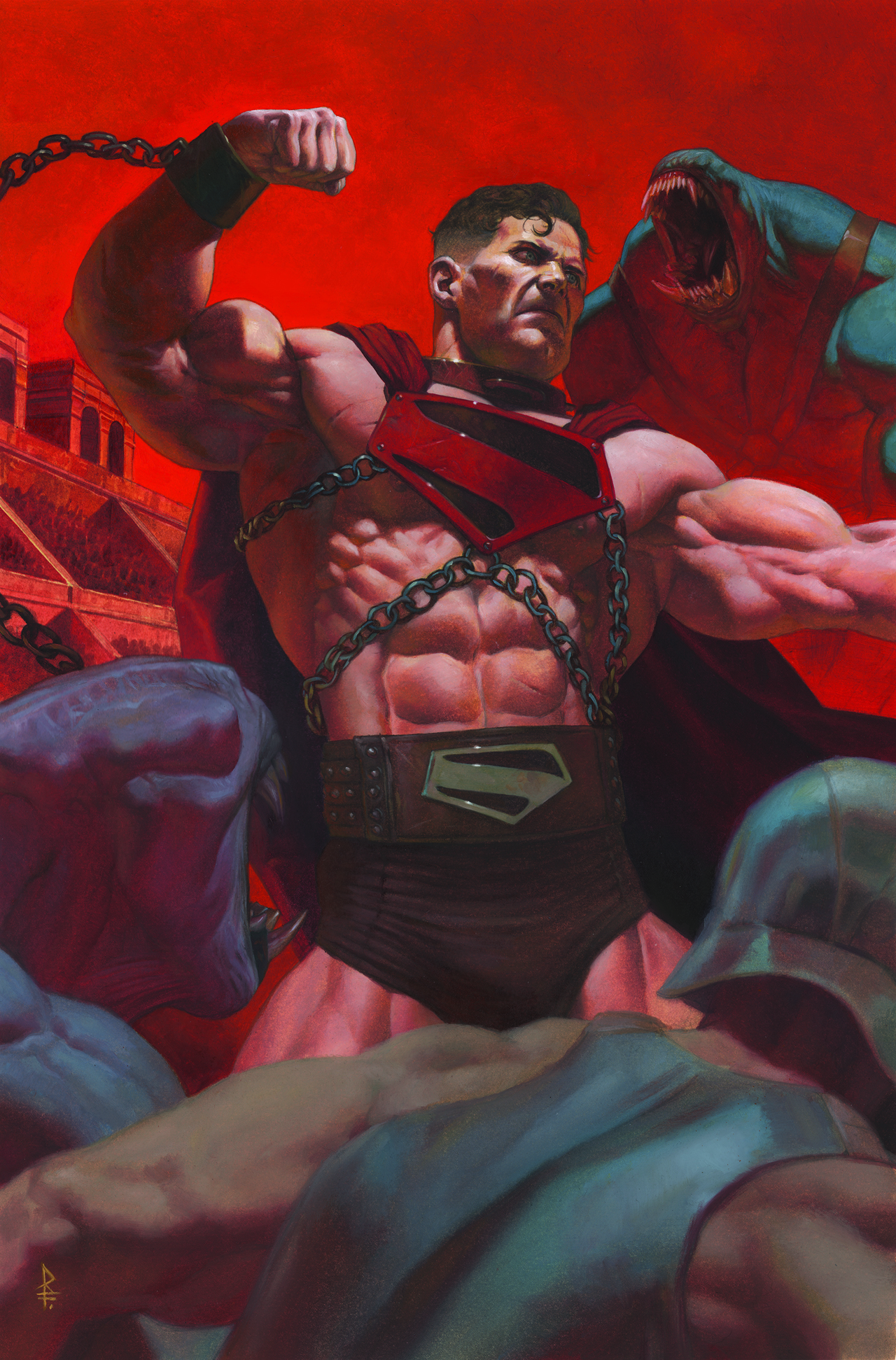
Nrama: In Worlds of War, Superman is distinctively older and off-world. Not all Future State titles are set in the same time period. Does your story co-exist with the stories where Jon is Superman on Earth and in the Justice League, or is it different time periods? If the same, does Jon's role on Earth inform your story at all?
Johnson: Worlds of War takes place at approximately the same time as Superman of Metropolis, and yes, it does refer a little to what's happening with Jon. That said, you don't need to buy both books to understand either story, they don't rely on each other at all.
Nrama: The movies Man of Steel and Justice League: Dawn of Justice touched on Superman's difficulty finding a place on Earth. Does the premise of your story touch on a similar premise or are the circumstances that seemingly drove Clark from Earth different?
Johnson: In Worlds of War, there's an element of mystery regarding why Clark left Earth, and possibilities why he might have left and where he might have gone are explored before we see where Clark actually is and what's happened to him. Whereas those movies you mention show Clark finding his place on Earth, an important part of Worlds of War is Earth finding its way without the original Superman, and showing how Earth remembers him after he's gone.
Nrama: What else can you tell readers about your story in Worlds of War?
Johnson: Worlds of War is a love letter to Superman #400, an extremely ambitious and artistic anthology from 1984.
That book really inspired me, even as a kid. It explored all the things Superman means to the world, and ways he could be remembered in the future…it was such a profound exploration of the character, and with as mind-blowing an opportunity as Future State is, I knew I wanted to draw on that for Worlds of War.
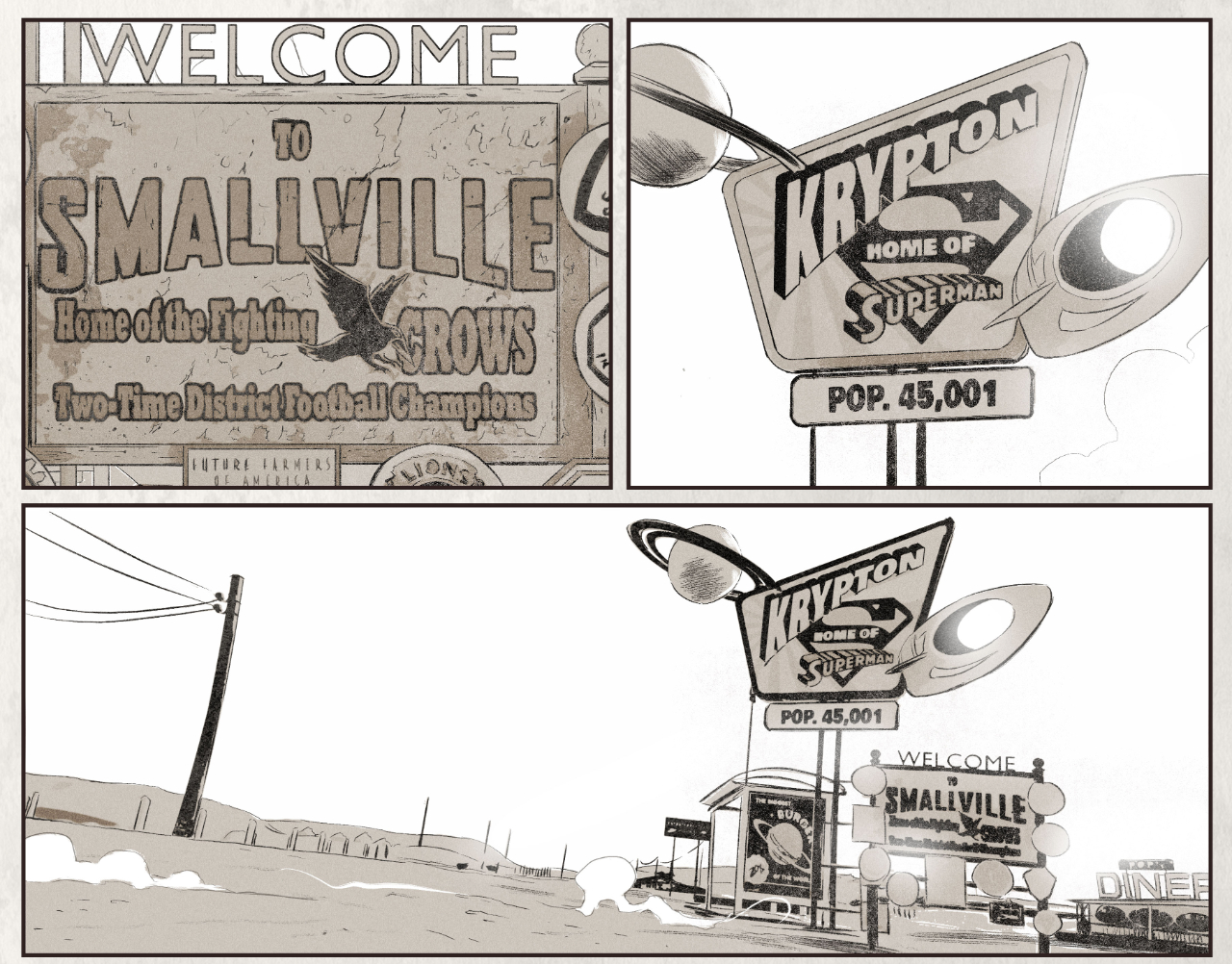
And Mikel Janin is the best artist imaginable to tell a story like this. It's hard to say "best work of his career" because he's been pumping out so much transcendent work for so long, but I've never seen anything better from Mikel than this. He's incredible.
Nrama: We believe you're the only writer with a Future State one-shot debuting in February. What can you tell readers about Superman: House of El?
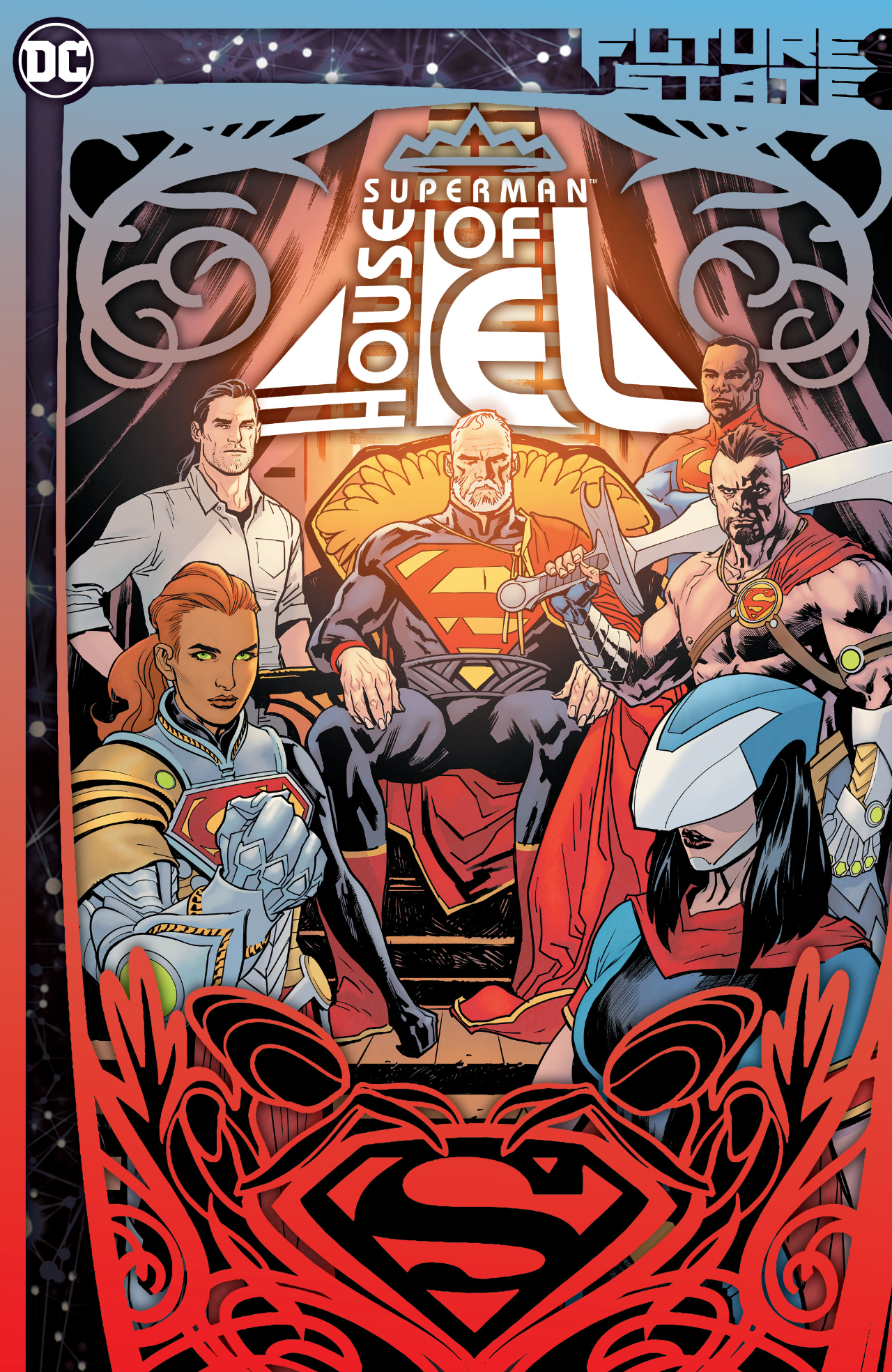
Johnson: House of El is a glimpse into the far future, as epic a story as I could conceive of fitting into 48 pages. DC characters and storylines are so dynamic and things can change so much in so short a time, the prospect of imagining the El family line 1000 years in the future was a pretty daunting task at first. But I filled in generations of backstory, imagined what might have happened to Clark in the years to come, who he lost, other relationships he might have had across the centuries, and at the end of that family tree, I had a cast of characters who felt like a noble house in the culmination of a far-flung fantasy epic.
I decided to embrace that and treated the story like we were seeing the last days of Camelot or something: something in line with the epic poems, like Beowulf or the Song of Roland.
Scott Godlewski's art has been next level, his action scenes are always some of the most dynamic on the shelves, and this book is definitely no exception. House of El has been a complete blast to work on, and I can't wait for people to read the mythology we created for it.
If you like different takes on the classic Superman, check out our countdown of the greatest alternative versions of the Man of Steel from across the Multiverse.
I'm not just the Newsarama founder and editor-in-chief, I'm also a reader. And that reference is just a little bit older than the beginning of my Newsarama journey. I founded what would become the comic book news site in 1996, and except for a brief sojourn at Marvel Comics as its marketing and communications manager in 2003, I've been writing about new comic book titles, creative changes, and occasionally offering my perspective on important industry events and developments for the 25 years since. Despite many changes to Newsarama, my passion for the medium of comic books and the characters makes the last quarter-century (it's crazy to see that in writing) time spent doing what I love most.


